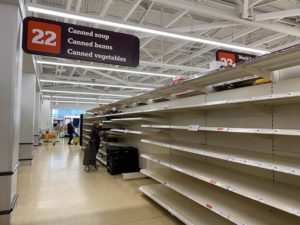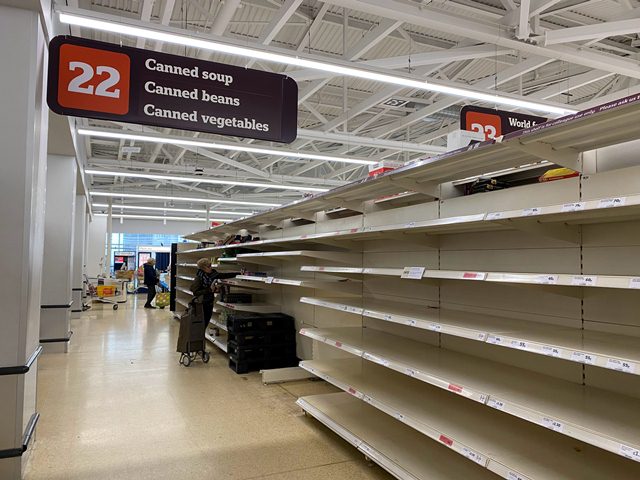
The logistics industry is rebalancing as new demand patterns emerge due to the impact of the coronavirus (COVID-19) pandemic, but firms are facing many challenges as they pursue new opportunities, according to the latest research from Transport Intelligence (Ti).
Among the biggest beneficiaries of the COVID-19 crisis are the e-retail logistics, on-demand and last mile delivery sectors, with some companies describing the situation as a ‘second Christmas’ in terms of shipment volumes.
In particular the grocery, consumer and household goods sectors have seen high demand as consumers move to homeworking due to the impact of the coronavirus (COVID-19), said the Ti whitepaper released April 7.
Sectors benefiting most from heightened demand include:
- Pharmaceuticals and medical equipment
- Personal Protective Equipment
- Groceries and cleaning products
Unexpected winners, which have seen a surge in demand due to the work-from-home directive, are:
- Kitchen equipment
- Home schooling materials
- DIY products
- Consumer electronics
- Server and ICT infrastructure equipment
On the downside, those sectors which have seen the most dramatic falls in volumes include:
- Automotive
- Oil and petroleum distribution
- Construction
- Steel production
- Industrial
So far it seems that those sectors hit the hardest have been directly exposed to the heavier manufacturing industry, said Ti, a leading UK-headquartered logistics and supply chain market research and analysis company.
These have been hit both by falling consumer demand for ‘big ticket’ items (such as cars) and the requirement to shut down factories due to fears of coronavirus spreading through their workforce.
“The closure of an automotive plant affects not only up stream commodities, such as steel and chemicals, but also related high tech, textiles and plastics suppliers in their supply chains,” said John Manners-Bell, CEO of Ti and whitepaper author.
Construction logistics has also been impacted severely. Many governments have directed the closure of major building sites and in others the wholesalers or retailers supplying builders have been closed leading to a shortage of materials even if work is nominally allowed to proceed.
One sector that has also lost out is that on events. The sector is quite important to many logistics companies due to the movements of significant amounts of materials on a regional or even global basis. Most notably in 2020 this will include the Olympics but on a more localized basis this covers the thousands of affected trade shows which take place annually.
Food service has also been devastated by government regulation. Restaurants, cafes, pubs and clubs, along with outlets serving the lunchtime meal market, have been shut down in most countries, affecting large swathes of the contract logistics market responsible for serving them on a daily basis.
In the case of the furniture sector, meanwhile, while consumer demand can still exist, store shutdowns have meant this demand cannot be fulfilled.
Likewise, there is significant demand for consumer electronic products in the West to support homeworking or home entertainment during the lockdown period. However, “there is a looming supply crisis in the second quarter of the year due to the prolonged shutdown of many suppliers in China between January and March,” said Manners-Bell.
He added that if the crisis is followed by a recession in the second half of the year, “many sectors which survived the initial lockdown period well, will struggle in the following months due to weak consumer demand.”
Accordingly, the logistics industry is rebalancing to meet these new demands, he said.
“Resources allocated to parts of the sector which are in freefall due to the impact of the Coronavirus are in some cases being re-directed to support areas of the economy which are booming,” said the paper.
However, this is not always easy as many workers have specific skills or may be regulated in the vehicles or the materials-handling equipment they can drive. Many will need training before they can move to handling products with specific requirements, such as pharmaceuticals.
Logistics companies which are dedicated to a specific struggling sector have far fewer opportunities. “It will take time for some rebalancing to take place and some price adjustments in some cases as truck companies need to re-plan routes,” added the paper.
“It is very difficult for a logistics company which for years has focused on serving the needs of a few (perhaps only one) automotive manufacturer to suddenly seek business elsewhere. Not only are there operational challenges but it also requires a change of mindset amongst sales staff, for instance,” said the report.
Photo by John Cameron on Unsplash





